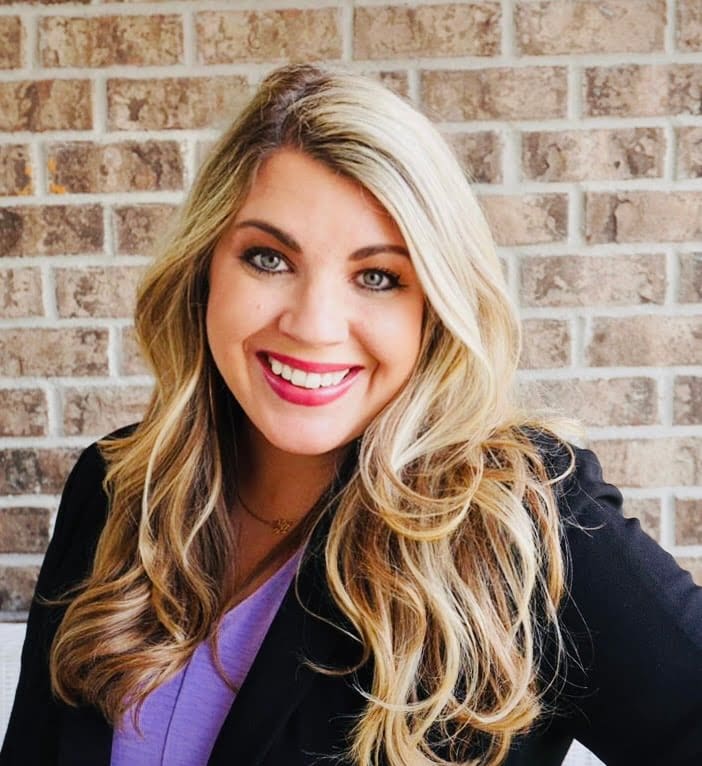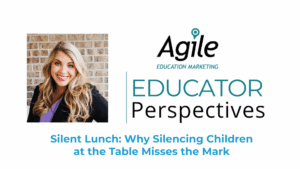
The Future Is Stackable: Meeting the Demand for Career-Ready Education
Explore how new tech is transforming career readiness, and how education solution providers can help schools deliver future-ready, skills-based programs.
As an educator, I’ve seen firsthand how much children grow in those small, in-between moments of the school day. The cafeteria, for example, isn’t just a place to eat—it’s a place where kids learn how to navigate friendships, share stories, and build the social skills they’ll carry long after they leave elementary school. That’s why the growing trend of “silent lunch” has been weighing heavily on me. While the intention may be to restore order, I believe the practice does more harm than good.
When students are told to remain silent during lunch, we take away one of the few times in their day that belongs to them. The classroom is structured, the playground has its own rules, but lunch is supposed to be a chance to breathe, connect, and just be kids. Research on child development backs this up: those peer-to-peer interactions are vital for social growth. Without them, children miss out on practicing communication, problem-solving, and even empathy.

I understand why schools lean on silent lunch—it’s often used as a quick fix for noise or behavior management. But in truth, silence doesn’t teach self-control, respect, or responsibility. It teaches compliance, and only for the short term. Long-term, it can actually create resentment and make kids dread mealtime. That’s the last thing we want when we’re trying to create a positive school culture.
Silent lunch also sends a confusing message. On one hand, schools are investing in social-emotional learning programs to help children manage emotions and build strong relationships. On the other, some are silencing those very skills when it’s most natural for children to practice them. Lunch should be an extension of the classroom in the best way—not a time when voices are shut down.
There’s also the issue of fairness. Too often, silent lunch is applied as a group punishment. One or two children misbehave, and suddenly the entire grade loses their ability to talk. Instead of fostering accountability, this approach can chip away at trust and community. Children quickly notice when discipline feels unfair, and that sense of injustice makes them less—not more—likely to buy into the rules.
I believe we can do better. With structure, guidance, and encouragement, students can learn how to enjoy lunchtime while respecting the space and each other. Instead of silencing them, let’s use lunch to model and practice conversation skills, conflict resolution, and kindness. Yes, it may take more effort on the front end, but the reward is a healthier, more connected school environment.
At the end of the day, our job is bigger than keeping noise down. It’s about shaping children into thoughtful, capable, and compassionate people. Their voices deserve to be heard—even at the lunch table.

Meredith Biesinger is a licensed dyslexia therapist in Mississippi, in addition to being an experienced classroom teacher and K-12 administrator. Meredith also works as a consultant, where she bridges the bridge the gap between K-12 school districts and ed-tech organizations. With a passion for literacy, she is also a professional writer and syndicated author. With a M.Ed in Educational Leadership and a B.S. in English Education and Creative Writing, she has had rich and diverse opportunities to teach students and education professionals in different parts of the country as well as overseas.

Explore how new tech is transforming career readiness, and how education solution providers can help schools deliver future-ready, skills-based programs.

Blog Post Educator Perspective As an educator, I’ve seen firsthand how much children grow in those small, in-between moments of

Blog Post Education Marketing State-level regulation of artificial intelligence (AI) in K-12 education has accelerated dramatically since 2023, with a
We’re here ready to answer your questions! Share a little information with us below and one of our Agile experts will be in touch shortly.
We use cookies to give you the best online experience. Cookies keep our site secure and reliable. They allow us to personalize agile-ed.com to you and help us analyze how the site is used.